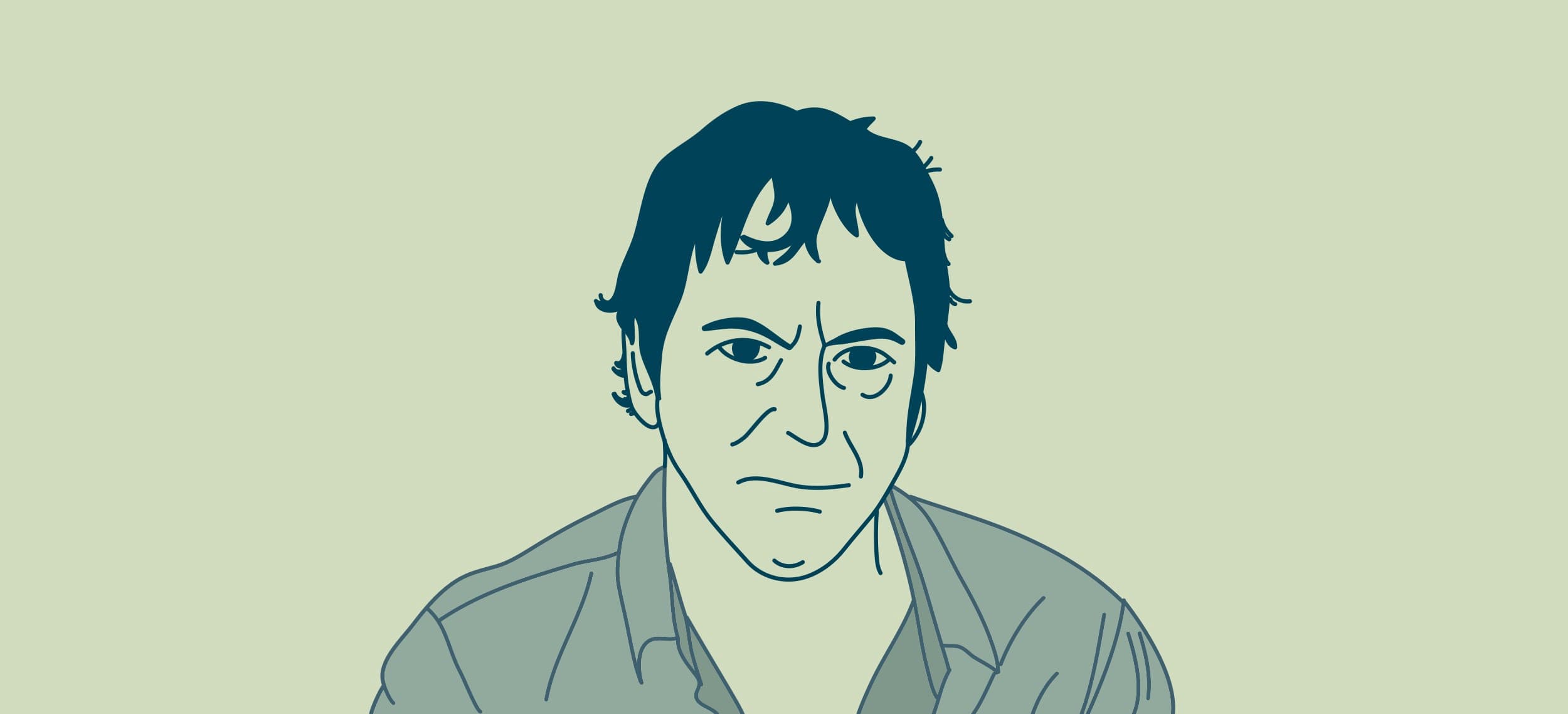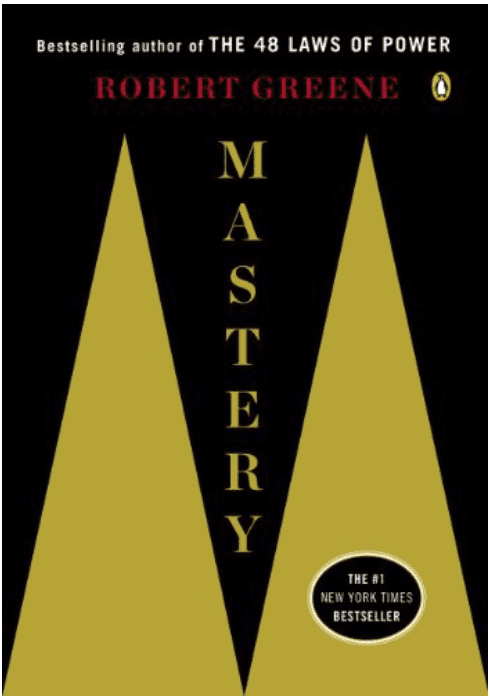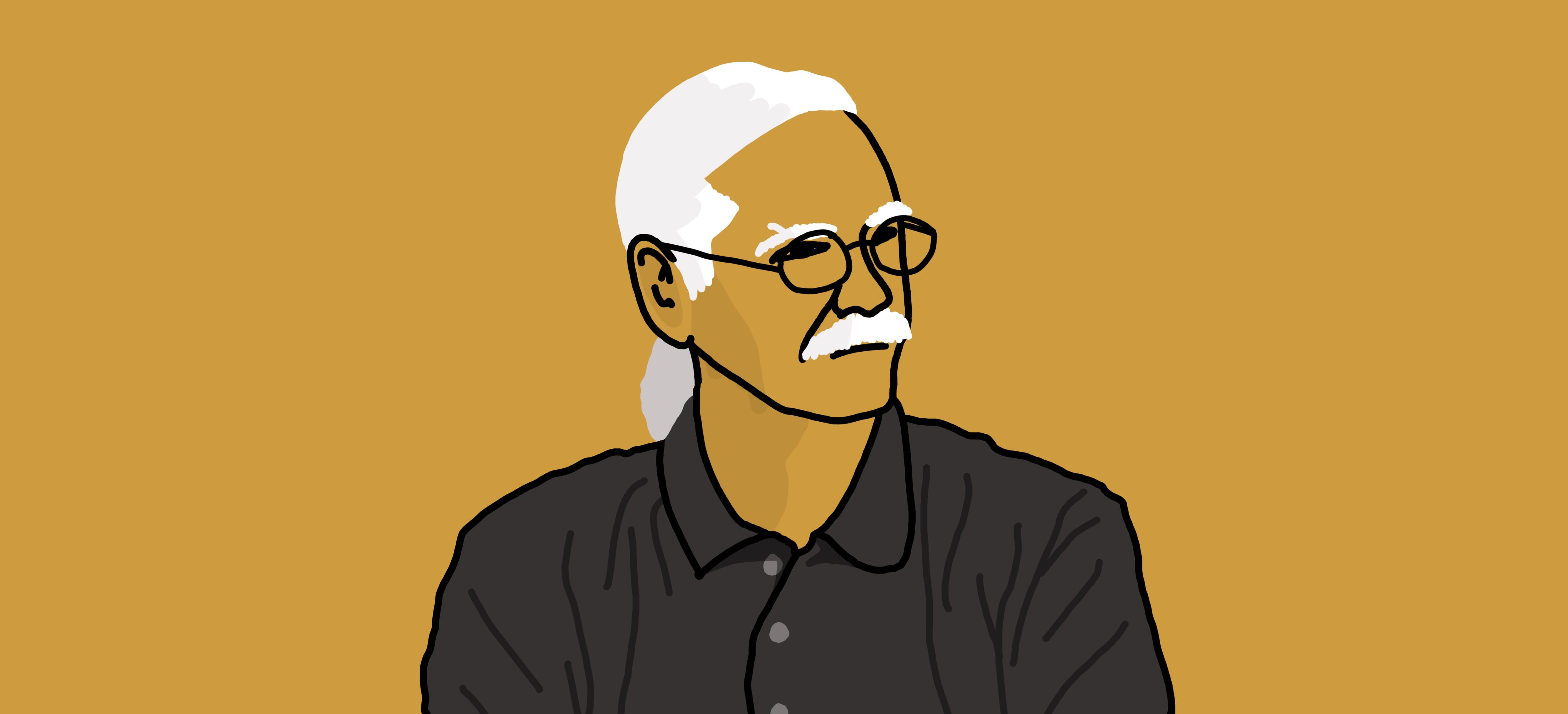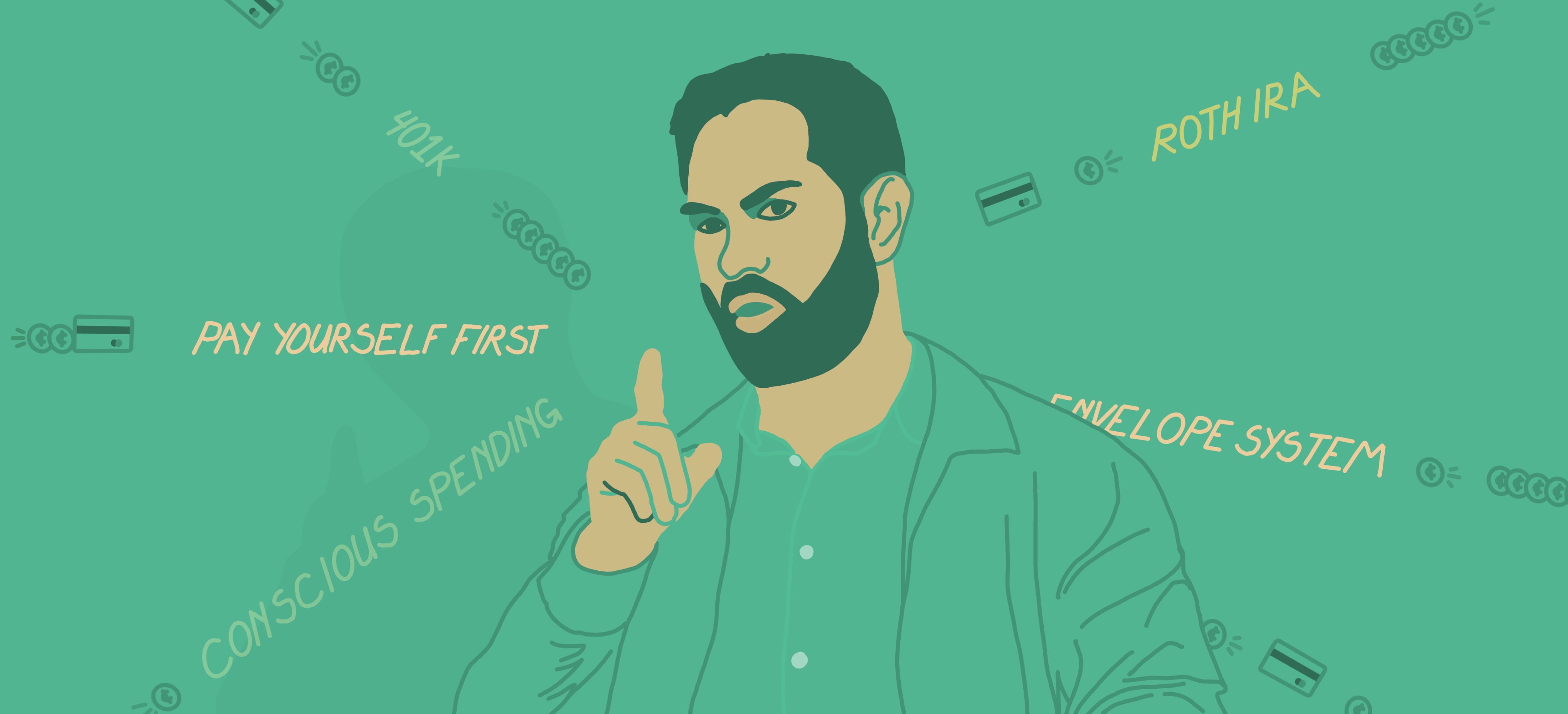Mastery by Robert Greene—Summary, Notes, + Quotes
The essential book to help you find your purpose.

Mastery by Robert Greene is a practical read on helping people find and pursue their Life’s Task (purpose).
I personally felt Mastery was a bit disorganized at times, which was especially apparent looking back at my notes. So below are quotes and thoughts that stuck out to me in the best order I could provide.

What is Mastery and Why Pursue It?
“Mastery — the feeling that we have a greater command of reality, other people, and ourselves. Although it might be something we experience for only a short while, for others — Masters of their field — it becomes their way of life, their way of seeing the world.”
The pursuit of mastery is the pursuit of purpose, whatever your Life’s Task, as Greene refers to it, may be.
“This is not mastery for the purpose of dominating nature or other people, but for determining our fate… You are contributing to the most important cause of all — the survival and prosperity of the human race, in a time of stagnation.”
Because being on the path of mastery requires discipline and a strong work ethic towards a craft you enjoy, you will be working towards something great and something you can be proud of.
Just as James Clear points out your daily habits define who you are in Atomic Habits, Greene also says pursuing mastery is important because…
“…people get the mind and quality of brain that they deserve through their actions in life.”
The road to mastery can be defined by three phases and Mastery goes into depth on each phase.
- Apprenticeship — you’re a student learning from others
- Creative-Active — you’re a practitioner, adding your own creativity and style to your craft
- Mastery — you have complete command of the craft
”[Masters] excel by their ability to practice harder and move faster through the process, all of this stemming from the intensity of their desire to learn and from the deep connection they feel to their field of study. And at the core of this intensity of effort is in fact a quality that is genetic and inborn — not talent or brilliance, which is something that must be developed, but rather a deep and powerful inclination toward a particular subject.”
Masters become masters not because they seek fame, money, or an outcome, but because they’re obsessed with their craft. There are no shortcuts to mastery. It takes time. It takes effort. There will be failures along the way.
Why Most People Don’t Achieve Mastery in Their Lives
“A natural response when people feel overwhelmed is to retreat into various forms of passivity… The less we attempt, the less chances of failure. If we can make it look like we are not really responsible for our fate, for what happens to us in life, then our apparent powerlessness is more palatable. For this reason we become attracted to certain narratives: it is genetics that determines much of what we do; we are just products of our times…”
We are born into a reality that has existed before us with masters already present. We see them online, in TV, we read about them. When we start working toward a particular field, we learn who the masters are already. It’s easy to become envious and to think, “I’ll never be as good, as famous, as well liked by the community. They were born with more natural talent. Why should I try too hard?”
This is the attitude of most people and it can have devastating consequences toward your Life’s Task.
“This [attitude] can diminish your levels of effort and discipline below the point of effectiveness. Conforming to social norms, you will listen more to others than to your own voice. You may choose a career path based on what peers and parents tell you, or on what seems lucrative. If you lose contact with this inner calling, you can have some success in life, but eventually your lack of true desire catches up with you. Your work becomes mechanical. You come to live for leisure and immediate pleasures. In this way you become increasingly passive, and never move past the first phase. You may grow frustrated and depressed, never realizing that the source of it is your alienation from your own creative potential.”
How do you get past this passive attitude? For one, you must find your Life’s Task — your natural inclination towards a particular field.
“This intense connection and desire allows them to withstand the pain of the process — the self doubts, the tedious hours of practice and stuffy, the inevitable setbacks, the endless barbs from the envious. They develop a resiliency and confidence that others lack.”
When you know you Life’s Task, you can work through inevitable roadblocks, challenges, and failures. You will find it easier to get back up again, to keep going.
Discovering Your Calling: The Life’s Task
There’s a difference between wishing you were a master at something, and wishing you were doing something to get there.
“…he didn’t care so much about the finished product; it was the search and process in creating something that had always excited him.”
You have to love the work. You have to feel a profound connection to it. You must be obsessed.
“Work is often seen as a means for making money so we can enjoy that second life that we lead.… This is a depressing attitude, because in the end we spend a substantial part of our waking life at work. If we experience this time as something to get through on the way to real pleasure, then our hours at work represent a tragic waste of the short time we have to live.”
When you find work that you love to do, it doesn’t feel like work is something you have to do to live, but an opportunity to create something beyond yourself.
To find work you like, Greene recommends trying various fields you’ve always been interested in.
“Eventually, you will hit upon a particular field, niche, or opportunity that suits you perfectly. You will recognize it when you find it because it will spark that childlike sense of wonder and excitement; it will feel right. Once found, everything will fall into place. You will learn more quickly and more deeply. Your skill level will reach a point where you will be able to claim your independence from within the group you work for and move out on your own.”
As you grow older as an adult, it’s harder to find these natural inclinations. For years, we’ve already been influenced by the culture we live in, our peers, our family, the influencers we look up to.
“You must dig for signs of such inclinations in your earliest years. Look for its traces in visceral reactions to something simple; a desire to repeat an activity that you never tired of; a subject that stimulated an unusual degree of curiosity; feelings of power attached to particular actions… You have nothing to create; you merely need to dig and refine what has been buried inside of you all along. If you reconnect with this core at any age, some element of that primitive attraction will spark back to life, indicating a path that can ultimately become your Life’s Task.”
To help you find this inclination, practice journaling and reflecting on your feelings toward different types of work and ask yourself why you feel this way.
“Become who you are by learning who you are.”
Pindar, Ancient Greek poet
“If you allow yourself to learn who you really are by paying attention to that voice and force within you, then you can become what you were fated to become — an individual, a Master.”
There are a two pathways you can take for finding your field. First, find a deep narrow niche in your field.
”[once you’ve found a field you like] …look for side paths that particularly attract you… When it is possible, you make a move to this narrower field. You continue this process until you eventually hit upon a totally unoccupied niche, the narrower the better. In some ways, this niche corresponds to your uniqueness…”
Or you can combine two entirely different fields into one and create a new category.
“Once you have mastered your first field, you look for other subjects or skills that you can conquer, on your own time if necessary. You can now combine this added field of knowledge to the original one, perhaps creating a new field, or at least making novel connections between them. You continue this process as long as you wish… Ultimately you create a field that is uniquely your own.”
Once you know you’re on the path of your Life’s Task, don’t let anything stand in the way — nothing is more important.
“In dealing with your career and its inevitable change, you must think in the following way: You are not tied to a particular position; your loyalty is not to career or a company. You are committed to your Life’s Task, to giving it full expression.”
Don’t let the field itself to evolve beneath you and leave you behind.
“…it is up to you to foresee the changes going on right now in your profession. You must adapt your Life’s Task to these circumstances. You do not hold on to past ways of doing things. Because that will ensure you will fall behind and suffer for it. You are flexible and always looking to adapt.”
Don’t be lured to other paths that seem easier or more lucrative.
“The road to mastery requires patience. You will have to keep your focus on five or ten years down the road, when you will reap the rewards of your efforts… In the end, the money and success that truly last come not to those who focus on such things as goals, but rather to those who focus on mastery and fulfilling their Life’s Task.”
Take one step at a time.
“…direct yourself toward the small things you are good at. Do not dream or make grand plans for the future, but instead concentrate on becoming proficient at these simple and immediate skills. This will bring you confidence and become a base from which you can expand to other pursuits. Proceeding in this way, step by step, you will hit upon your Life’s Task.”
Phase I. Submit to Reality: The Ideal Apprenticeship
The apprenticeship phase begins when you’ve identified the particular field you have a deep interest and inclination for. You may not have found exactly your Life’s Task, but you’re on the right path.
The Best Kind of Apprenticeships
“…the goal of an apprenticeship is not money, a good position, a title, or a diploma, but rather the transformation of your mind and character — the first transformation on the way to mastery. You enter a career as an outsider.”
Start an apprenticeship that offers the best opportunities for learning. Sometimes this means accepting the lowest position at a good company. It would be a mistake to seek out the best pay if it’s at a company that won’t mold you to be an expert in your field.
“…you must value learning above everything else.… opt for the situation that will give you the most opportunities to learn, particularly with hands-on work.… choose a place that has people and mentors who can inspire and teach you. A job with mediocre pay has the added benefit of training you to get by with less — a valuable life skill.”
Mentors who you can learn from are essential to your career and skill growth.
“Practical knowledge… is what will pay you dividends for decades to come — far more than the paltry increase in pay you might receive at some seemingly lucrative position that offers fewer learning opportunities. This means that you move toward challenges that will toughen and improve you, where you will get the most objective feedback on your performance and progress. You do not choose apprenticeships that seem easy and comfortable.”
Don’t be afraid of a challenging job with low pay. Your reward in an apprenticeship is not money — it is in skills and character.
What You Do When You Have an Apprenticeship
When starting an apprenticeship, a good attitude is an essential foundation for success.
“You are naïve and full of misconceptions about this new world. Your head is full of dreams and fantasies about the future. Your knowledge of the world is subjective, based on emotions, insecurities, and limited experience. Slowly, you will ground yourself in reality, in the objective world represented by the knowledge and skills that make people successful in it. You will learn how to work with others and handle criticism. In the process you will transform yourself from someone who is impatient and scattered into someone who is disciplined and focused, with a mind that can handle complexity. In the end, you will master yourself and all of your weaknesses.”
It’s important to keep a humble a mind and to not attempt to rise to the top. At some points, you may think you know everything and that you’re ready to go out on your own, but you will see there is a lot to learn before proceeding to the next phase of adding your own style and ideas to the mix.
“The greatest mistake you can make in the initial months of your apprenticeship is to imagine that you have to get attention, impress people, and prove yourself.
“These thoughts will dominate your mind and close it off from the reality around you. Any positive attention you receive is deceptive; it is not based on your skills or anything real, and it will turn against you. Instead, you will want to acknowledge the reality and submit to it, muting your colors and keeping in the background as much as possible, remaining passive and giving yourself the space to observe. You will also want to drop any preconceptions you might have about this world you are entering. If you impress people in these first months, it should be because of the seriousness of your desire to learn, not because you are trying to rise to the top before you are ready.”
Don’t try to impress in any way other than through your hard work, determination, and desire to learn. You need to learn your new environment inside and out. How companies in the field work, even at the levels above you.
“…the ability to observe any unfamiliar environment will become a critical lifelong skill. You will develop the habit of stilling your ego and looking outward instead of inward. You will see in any encounter what most people miss because they are thinking of themselves. You will cultivate a keen eye for human psychology, and strengthen your ability to focus… This will be a very important skill for the next, creative phase in life.”
By being able to critically observe all aspects of your environment, you will be able to make better decisions with your work by seeing the whole picture.
Come to accept that apprenticeships will require monotonous and tedious work. This is something you will have to push through and embrace. Even if you don’t think you have anything left to learn, you will learn the power of disciple — the ability to do what you know needs to be done even when your body and mind don’t want you to.
Discipline and the Resistance Practice
”[The Resistance Practice means] you go in the opposite direction of all of your natural tendencies when it comes to practice. First, you resist the temptation to be nice to yourself. You become your own worst critic; you see your work as if through the eyes of others. You recognize your weaknesses, precisely the elements you are not good at.… Second, you resist the lure of easing up on your focus. You train yourself to concentrate in practice with double the intensity, as if it were the real thing times two. In devising your own routines, you become as creative as possible. You invent exercises that work upon your weaknesses. You give yourself arbitrary deadlines to meet certain standards, constantly pushing yourself past perceived limits. In this way you develop your own standards for excellence, generally higher than those of others.”
Discipline is a super power. If you can develop strong discipline, you can consistently do the work required to be on the path for mastery and success. Set high standards for yourself, even if your friends, peers, or even family think you’re crazy. They most likely won’t have the same levels of expectations for themselves.
“Mistakes and failures are precisely your means of education. They tell you about your own inadequacies. It is hard to find out such things from people, as they are often political with their praise and criticisms. Your failures also permit you to see the flaws of your ideas, which are only revealed in the execution of them. You learn what your audience really wants, the discrepancy between your ideas and how they affect the public.”
No one becomes a master with 100% perfect record. It is okay to fail because with patience and time, you will recover and grow even more skillful and stronger due to those learning experiences. Be the own judge of your quality — coworkers and even bosses will not say as much as they think.
“You want to learn as many skills as possible, following the direction that circumstances lead you to, but only if they are related to your deepest interests. Like a hacker, you value the process of self-discovery and making things that are of the highest quality. You avoid the trap of following one set career path. You are not sure where this will all lead, but you are taking full advantage of the openness of information, all of the knowledge about skills now at our disposal. You see what kind of work suits you and what you want to avoid at all cost. You move by trial and error.”
Learning lots of different skills allows you to combine different skills later in life, and get you closer to discovering your Life’s Task.
“You are not wandering about because you are afraid of commitment, but because you are expanding your skill base and your possibilities. At a certain point, when you are ready to settle on something, ideas and opportunities will inevitably present themselves to you. When that happens, all of the skills you have accumulated will prove invaluable. You will be the Master at combining them in ways that are unique and suited to your individuality. You may settle on this one place or idea for several years, accumulating in the process even more skills, then move in a slightly different direction when the time is appropriate.”
Approaching work like this will keep you from finding yourself locked in a boring career and instead provide opportunities.
“The very desire to find shortcuts makes you eminently unsuited for any kind of mastery.”
Absorb the Master’s Power: The Mentor Dynamic
During the apprenticeship phase, it’s critical to find and work under a master as a mentee. With their experience, they can guide you on the right path and help you grow your skills far faster than you could alone.
The best mentor-mentee relationships are with people you work with on a daily basis, such as your manager. If your direct manager isn’t a suitable mentee, then possibly another leader at your company you have the ability to interact with. If no one at your workplace is suitable, find a better company or the next best thing is finding a mentor online.
“To learn requires a sense of humility. We must admit that there are people out there who know our field much more deeply than we do. Their superiority is not a function of natural talent or privilege, but rather of time and experience. Their authority in the field is not based on politics or trickery. It is very real.”
Respect masters for what they have accomplished.
“Even if we have teachers in our lives, we tend not to pay full attention to their advice, often preferring to do things our own way. In fact, we come to believe that being critical of Masters or teachers is somehow a sign of our intelligence, and that being a submissive pupil is a sign of weakness.”
It’s a huge mistake to think you know better than a master.
“As the relationship progresses you can make this absorption process more conscious and direct, questioning them about the principles underlying their way of doing things. If you are clever,… getting them to analyze their own creativity for you, and mining all kinds of rich ideas in the process. They are often grateful for the opportunity to reveal the inner workings of their power, particularly to someone they do not perceive as a threat.”
See People As They Are: The Social Intelligence
Treat the work you do, no matter how small the job and responsibility is as art — as a demonstration of your craft. But don’t do it alone. When appropriate, bring other people in, be open to feedback, and create something together to make not just yourself win, but others with you as well.
“…your work is the single greatest means at your disposal for expressing your social intelligence. By being efficient and detail oriented in what you do, you demonstrate that you are thinking of the group at large and advancing its cause. By making what you write or present clear and easy to follow, you show your care for the audience or public at large. By involving other people in your projects and gracefully accepting their feedback, you reveal your comfort with the group dynamic. Work that is solid also protects you from the political conniving and malevolence of others — it is hard to argue with the results you produce. If you are experiencing the pressures of political maneuvering within the group, do not lose your head and become consumed with all of the pettiness. By remaining focused and speaking socially through your work, you will both continue to raise your skill level and stand out among all the others who make a lot of noise but produce nothing.”
Let your work speak for yourself while others around you try to get ahead by playing political games.
You must also keep up a healthy appearance. Even if you don’t think it’s true, people are and will judge you based on your appearance. Use this to your advantage by crafting an appearance that portrays the character you want to be known for.
“…turn this dynamic around by consciously molding these appearances, creating the image that suits you, and controlling people’s judgments. At times you will find it appropriate to stand back and create some mystery around you, heightening your presence. At other times you will want to be more direct and impose a more specific appearance. In general, you never settle on one image or give people the power to completely figure you out. You are always one step ahead of the public.”
But don’t go too far in trying to always persuade and figure out what the people around you are thinking.
“In dealing with fools you must adopt the following philosophy: they are simply a part of life, like rocks or furniture. All of us have foolish sides. Moments in which we lose our heads and think more of our ego or short-term goals. It is human nature. Seeing this foolishness within you, you can then accept it in others. This will allow you to smile at their antics, to tolerate their presence as you would a silly child. And to avoid the madness of trying to change them. It is all part of the human comedy, and it is nothing to get upset about or lose sleep over.”
Marcus Aurelius’s stoic philosophy also teaches this mindset in dealing with other people.
Phase II. Awaken the Dimensional Mind: The Creative-Active
“The Dimensional Mind has two essential requirements: one, a high level of knowledge about a field or subject; and two, the openness and flexibility to use this knowledge in new and original ways.… Once the mind is freed from having to learn these basics, it can focus on higher, more creative matters.”
The Dimensional Mind is a concept that combines knowledge and skepticism — having deep knowledge about a particular subject, but not so set in stone in order to be open to new ideas and perspectives.
Here’s How to Obtain a Dimensional Mind:
“…first, choosing the proper Creative Task, the kind of activity that will maximize our skills and knowledge; second, loosening and opening up the mind through certain Creative Strategies; and third, creating the optimal mental conditions for a Breakthrough or Insight. Finally, throughout the process we must also be aware of the Emotional Pitfalls — complacency, boredom, grandiosity, and the like — that continually threaten to derail or block our progress. If we can move through the steps while avoiding these traps, we cannot fail to unleash powerful creative forces from within.”
Treat all your work like art. Hone your craft. Do not think about false goals like money or fame, but focus on creating the best thing you’re capable of.
“If you go at your work with half a heart, it will show in the lackluster results and in the laggard way in which you reach the end. If you are doing something primarily for money and without a real emotional commitment, it will translate into something that lacks a soul and that has no connection to you. You may not see this, but you can be sure that the public will feel it and that they will receive your work in the same lackluster spirit it was created in. If you are excited and obsessive in the hunt, it will show in the details. If your work comes from a place deep within, its authenticity will be communicated.”
It’s very difficult to even think about “going down” in your level of lifestyle, but to achieve mastery, you can’t be afraid of that happening. You most likely will have to make some sacrifices.
“…you must let go of your need for comfort and security. Creative endeavors are by their nature uncertain. You may know your task, but you are never exactly sure where your efforts will lead. If you need everything in your life to be simple and safe, this open-ended nature of the task will fill you with anxiety. If you are worried about what others might think and about how your position in the group might be jeopardized, then you will never really create anything.… your ideas will grow stale and flat. If you are worried about failure or going through a period of mental and financial instability,… your worries will be reflected in the results. Think of yourself as an explorer. You cannot find anything new if you are unwilling to leave the shore.”
Why is the challenging path of mastery worth it? Because we don’t get anywhere near the same level of satisfaction from exercising our creativity as anything else. It defines who we are. It makes an impact on our community; to the human race.
“Engaged in the creative process we feel more alive than ever, because we are making something and not merely consuming, Masters of the small reality we create. In doing this work, we are in fact creating ourselves. Although it involves much pain, the pleasure that comes from the overall process of creativity is of an intensity that makes us want to repeat it. That is why creative people return again and again to such endeavors, despite all of the anxiety and doubt they stir up. It is nature’s way of rewarding us for the effort; if we had no such rewards, people would not engage in such activity, and mankind would suffer irreparably from this loss. This pleasure will be your reward as well, to whatever degree you pursue the process.”
With discipline, good work, and time, your skills will grow towards Mastery. And if time is a part of the process, then the more time you have, the more your skills will grow. Time, therefore is an ally. Have patience. By trying to rush to the next level quickly, you’re removing time from the equation and therefore decreasing your skill output.
“…you must come to embrace slowness as a virtue in itself. When it comes to creative endeavors, time is always relative. Whether your project takes months or years to complete, you will always experience a sense of impatience and a desire to get to the end. The single greatest action you can take for acquiring creative power is to reverse this natural impatience. You take pleasure in the laborious research process; you enjoy the slow cooking of the idea, the organic growth that naturally takes shape over time. You do not unnaturally draw out the process, which will create its own problems (we all need deadlines), but the longer you can allow the project to absorb your mental energies, the richer it will become. Imagine yourself years in the future looking back at the work you have done. From that future vantage point, the extra months and years you devoted to the process will not seem painful or laborious at all. It is an illusion of the present that will vanish. Time is your greatest ally.”
Fuse the Intuitive With the Rational: Mastery
On the path to Mastery, it’s important to lose sight of your goal. Mindset is critical.
“…you must also maintain a sense of destiny, and feel continuously connected to it. You are unique, and there is a purpose to your uniqueness. You must see every setback, failure, or hardship as a trial along the way, as seeds that are being planted for further cultivation, if you know how to grow them. No moment is wasted if you pay attention and learn the lessons contained in every experience. By constantly applying yourself to the subject that suits your inclinations and attacking it from many different angles, you are simply enriching the ground for these seeds to take root. You may not see this process in the present, but it is happening. Never losing your connection to your Life’s Task, you will unconsciously hit upon the right choices in your life. Over time, mastery will come to you.”
A powerful tool as you face increasing challenges is learning how to manage stress and anxiety — and even better, learn how to use it to your advantage.
“We must learn how to quiet the anxiety we feel whenever we are confronted with anything that seems complex or chaotic. In our journey from apprenticeship to mastery we must patiently learn the various parts and skills that are required, never looking too far ahead. In moments of perceived crisis, we must develop the habit of maintaining our cool and never overreacting. If the situation is complex and others are reaching for simple black-and-white answers, or for the usual conventional responses, we must make a point of resisting such a temptation. We maintain our Negative Capability and a degree of detachment. What we are doing is gaining a tolerance and even a taste for chaotic moments, training ourselves to entertain several possibilities or solutions. We are learning to manage our anxiety, a key skill in these chaotic times.”
The path to mastery is a long road. Temptations to abandon your path will come from all angles.
“The problem is that we humans are deep conformists. Those qualities that separate us are often ridiculed by others, or criticized by teachers.… anything that is peculiar to our makeup is precisely what we must pay the deepest attention to and lean on in our rise to mastery. Mastery is like swimming — it is too difficult to move forward when we are creating our own resistance or swimming against the current. Know your strengths and move with them.”
The most important thing in mastery is to stay true to who you are.
“Your false self is the accumulation of all the voices you have internalized from other people — parents and friends who want you to conform to their ideas of what you should be like and what you should do, as well as societal pressures to adhere to certain values that can easily seduce you. It also includes the voice of your own ego, which constantly tries to protect you from unflattering truths.”
TLDR
Robert Greene is my one my favorite writers because the way he likes to weave historical stories into practical advice. In Mastery, Greene helps people find their purpose in life, which he thinks is better called your Life’s Task. Although long and a little disorganized, Mastery was a fun read that revealed a desire for creativity and craft within me for my work. I still think I’m young in my career (apprenticeship phase) and Mastery provided some practical advice on how to make best use of my position and time to move closer to mastery. I wanted a bit more detail with the practical advice, but I still found it quite useful. I rate Mastery an 8/10.
You might also enjoy
-

Untethered Soul by Michael Singer—Summary, Notes, + Quotes
A spiritual exploration into who we are and who we ought to be.
-

War on Normal People—Summary, Notes, + Quotes
Is universal basic income the answer?
-

I Will Teach You to Be Rich—Summary, Notes, + Quotes
The best introduction to personal finance and how to enjoy spending your money.
-

The Effective Executive—Summary, Notes, + Quotes
The essential handbook to learn leadership and effectiveness at work.
Never Miss an Article
Get notified by email when I publish a new article.
